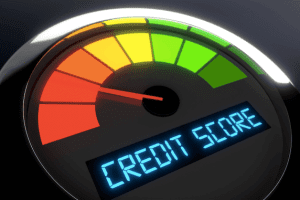A credit score is a numerical value which evaluates your financial history and determines your creditworthiness. It is extremely important as it affects your ability to borrow credit or loans, and dictates the terms that you receive. With this in mind, Dollar Hand presents useful tips on how to check your credit score for free, and ways to improve your rating if need be.
Why Are Credit Scores Important?
Lenders use credit scores to determine whether an applicant is a strong candidate as it provides an indication of whether you are likely to repay loans or credit back on time and helps them set the best rate for you. So if for instance you wished to borrow $255 payday loans and had a good credit score, then you would be offered more favorable loan terms than if you had a poor score. This may include lower interest rates and a longer loan term as you would be perceived as a more reliable borrower than an applicant with a bad rating.
For most credit score models, scores above 670 are considered as good and scores above 800 are regarded as excellent. According to Statista, the average credit score in the United States in 2021 was a solid rating of 714.

Why Should You Check Your Credit Score?
- Checking your credit score is in good shape is essential if you want to apply for a loan, sign up for a credit card or obtain a mortgage.
- The higher your credit scores, the more favorable terms you are likely to receive such as lower interest rates.
- Knowing your credit scores makes it likely that you will make better decisions about your finances going forward.
- If your rating is lower than expected, you can work to improve your credit score. Key ways include by paying your bills on time, managing your debt-to-loan ratio and registering to vote.
4 Easy Ways To Check Your Credit Score Without Any Fees:
- Check with the bank. Many financial institutions offer complimentary credit score checks which can be found by simply logging into your account online or via their mobile app.
- Go onto a free credit scoring website on the internet. Just make sure you check the companies terms and conditions before you sign up!
- You can request a free trial from credit reference bureaus such as Transunion, Experian and Equifax.
- Visit a credit counsellor. They can often find out your scores for you free of charge and discuss the details with you.
What Should You Do After Receiving Your Credit Score?
Since multiple credit scoring models exist, you are likely to have slightly different scores from each source. It is therefore best not to focus on one particular number but to pay attention to the range that you fall in. Checking whether your score is poor, fair, good, very good or excellent and why that is the case will be most useful as your score category can help you understand how lenders view your creditworthiness and the type of credit you are most likely to be approved for.

Does Checking Your Credit Score Lower It?
No, checking your own credit score is known as a ‘soft inquiry’ and will not affect your score in any way. You can check your score as often as you would like without lowering it, and many believe that it is wise to check it regularly, especially when you are about to apply for a new form of credit. It is also advised to check your credit report each year to make sure that there has been no fraud and to ensure that your financial records are all correct.
Was this article helpful?
Justine is a full-time writer with lots of expertise and a wealth of experience in the financial world. In particular, she specializes in household income and consumer finance across the United States. Follow her articles for useful advice and top tips, guides on how to save money and lots more.
